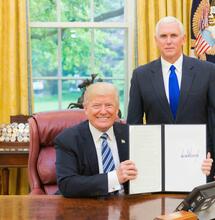War in Europe and the Legal Industry

Firstly and most importantly, In no way do we wish to undermine the severity of what is currently happening in Ukraine. The ongoing situation in Ukraine is the most extensive ground war within Europe since the end of the Second World War. We are just looking to explain how the contentiousness between most European countries and Russia could affect cannabis reforms and the legal market across Europe.
Cannabis operators in Europe are concerned that much-needed reforms and vital policies that would have assisted the growth of the market post-COVID will be put on hold due to current security issues.
Germany is under a day's drive from Ukraine, while Poland and Hungary share their borders. Many operators are worried that war may influence the production and supply chain of the area's cannabis industry.
Regulators have quashed these fears by clarifying that the cannabis supply chain should not be affected as Ukraine does not supply cannabis for the medical market. The main challenge that the cannabis industry faces is the same as all companies face—the rising gas price. Producers of medical cannabis in the area must grow cannabis indoors. As many of us know, the running costs of indoor cannabis production are much higher than outdoor production.
No surprise that the rising gas prices will put more limitations on cannabis production from cultivation to processing and packaging. Rising energy costs will impact all sectors, including transportation and storage, as the war continues. Before the troubles began, Ukraine had just started on the journey to legalising cannabis. Some of the first legal milestones had been checked off to show people's enthusiasm for the legal cannabis industry.
A petition was submitted to the country's Parliament in 2019 to consider the use of medicinal cannabis. The petition explained that the drug could benefit cancer patients, emphasising its cost-effectiveness in managing chronic pain and cancer symptoms. In a 2020 poll, 65 per cent of Ukrainians supported the use of medical cannabis. Last year, Congress amended a condition to allow the use of drugs that contain cannabinoids such as nabilone, nabiximol, and dronabinol.
The thought is that cannabis legislation would have progressed in Ukraine if their peace had not been disrupted. President Volodymyr Zelensky supported cannabis legalisation during the election campaign. However, whether or not he would have acted on it during his presidential term may never be known.
The unavoidable aftermath of land wars, especially in Europe, is one of the political and personal fallouts. For example, in Germany, politicians who vowed to look into the possibility of legalising recreational cannabis may use the current unrest as a reason to shelve the conversation.
Suppose the cannabis sector can take charge of its destiny at this time and prove that it is a substantial employer of labour and a massive boost to the economy. In that case, lawmakers may be encouraged to proceed with legalisation rather than putting them off.











